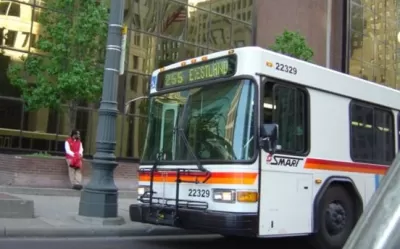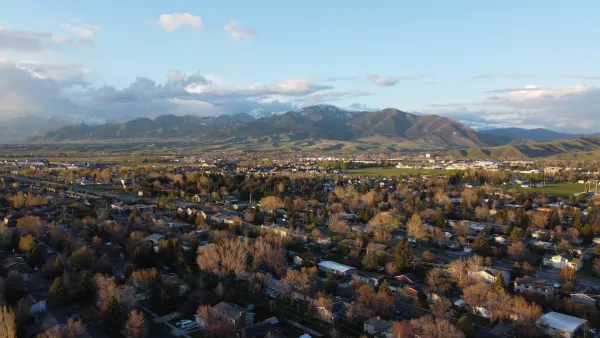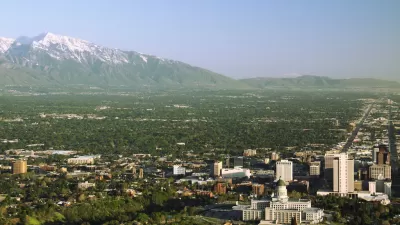Improved connectivity and reliability in the region's public transit could stimulate growth and help build a more vibrant local economy.

In a piece in Michigan Advance lamenting the "sorry state of public transportation in metro Detroit," Rick Haglund argues that the lack of regional connectivity in southeast Michigan is causing major economic damage to the area. "Amazon, for example, cited the lack of a regional transit system as one reason why it rejected Detroit in 2018 as a site for its $5 billion second headquarters, which might have brought thousands of six-figure salaried jobs to the area."
Widely regarded as one of the nation's worst public transit systems, Detroit relies on "two unconnected and inadequate bus systems" that serve more than 4 million residents. "Local metro Detroit leaders have been trying for more than 50 years to build a comprehensive transit system," but efforts have been stymied by opposition to new taxes.
But "[d]espite a lack of funding, there have been a variety of improvements to public transit in southeast Michigan," and the region "is expected to receive about $300 million from various COVID relief programs" that will backfill lost revenue. Ned Staebler, vice president for economic development at Wayne State University in Detroit and Washtenaw County representative on the Regional Transit Authority of Southeast Michigan (RTA) board of directors, "said the RTA will begin an extensive public engagement process this summer as part of an effort to create a new transit master plan." The agency has "hired GUD Marketing in Lansing to conduct a community engagement process, which will include involvement of a variety of business, citizen, nonprofit, political, faith-based and senior groups."
FULL STORY: Absence of viable regional transportation continues to hurt SE Michigan

Maui's Vacation Rental Debate Turns Ugly
Verbal attacks, misinformation campaigns and fistfights plague a high-stakes debate to convert thousands of vacation rentals into long-term housing.

Planetizen Federal Action Tracker
A weekly monitor of how Trump’s orders and actions are impacting planners and planning in America.

In Urban Planning, AI Prompting Could be the New Design Thinking
Creativity has long been key to great urban design. What if we see AI as our new creative partner?

King County Supportive Housing Program Offers Hope for Unhoused Residents
The county is taking a ‘Housing First’ approach that prioritizes getting people into housing, then offering wraparound supportive services.

Researchers Use AI to Get Clearer Picture of US Housing
Analysts are using artificial intelligence to supercharge their research by allowing them to comb through data faster. Though these AI tools can be error prone, they save time and housing researchers are optimistic about the future.

Making Shared Micromobility More Inclusive
Cities and shared mobility system operators can do more to include people with disabilities in planning and operations, per a new report.
Urban Design for Planners 1: Software Tools
This six-course series explores essential urban design concepts using open source software and equips planners with the tools they need to participate fully in the urban design process.
Planning for Universal Design
Learn the tools for implementing Universal Design in planning regulations.
planning NEXT
Appalachian Highlands Housing Partners
Gallatin County Department of Planning & Community Development
Mpact (founded as Rail~Volution)
City of Camden Redevelopment Agency
City of Astoria
City of Portland
City of Laramie




























